Select a topic to learn more
Prevention is the ultimate cure
Routine veterinary care
Our cats are the best in the world and they deserve the best health care. 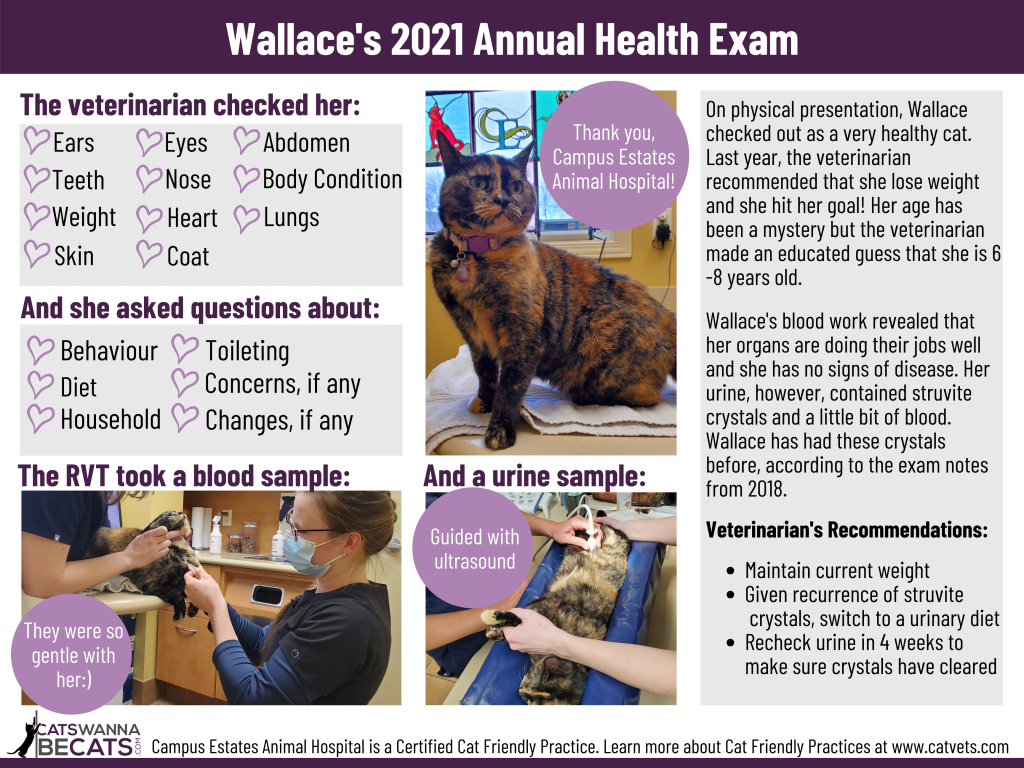
Routine veterinary care plays a critical role in the maintenance of your cat’s health and vitality. Annual health exams that include wellness blood and urine screening are hands (and paws) down the best method to assess your cat’s overall health and to prevent or manage disease.
As part of the physical examination, the veterinarian will check everything from nose to tail and ask about any changes or concerns that you would like to address. It’s hard for us cat parents to notice certain changes in our cats when they happen gradually, like weight fluctuations, energy level, and oral health. These differences are more obvious to a veterinarian because they keep detailed notes at every annual health exam. Cats age more rapidly than us, so much can happen from one year to the next.
Depending on your cat’s age, lifestyle, health status and risk of exposure, the veterinarian will recommend a vaccination and parasite prevention protocol to protect your cat from disease. The rabies vaccine is the most well-known, and in many areas, it’s a legal requirement of cat ownership (even if your cat is kept strictly indoors.) To learn more about feline vaccines and the diseases they protect your cat from, read this handout from the American Association of Feline Practitioners (you’ll want to for the upcoming quiz!) Parasites are covered in Safe Outdoor Exploration.
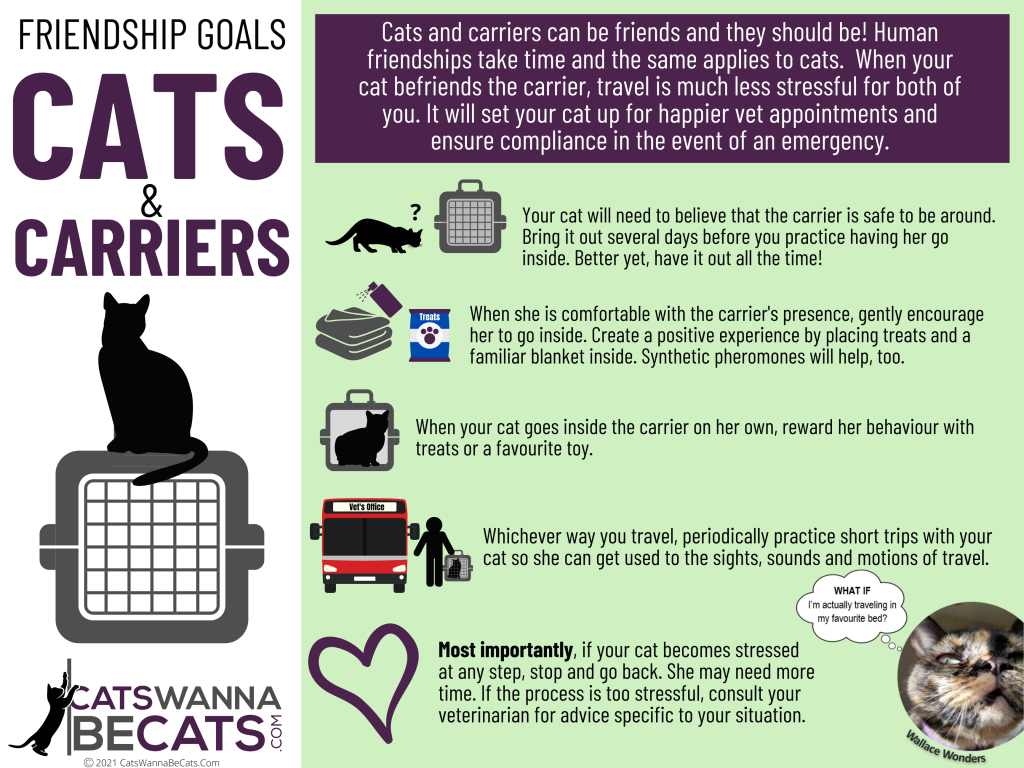
Sickness Behaviours
Cats are unable, and sometimes unwilling, to let us know when they feel unwell until it’s serious enough that they need emergency veterinary care. Annual health exams with blood and urine screening are essential for early disease detection. There are also clues you can look for at home between visits. Cats can be stubbornly stoic when they feel unwell but there are some changes in behaviour that will give them away. We call these changes “sickness behaviours.”
Sudden change in appetite or weight can indicate underlying problems such as hyperthyroidism, diabetes, metabolic disease, endocrine disease, dental disease, and cancer.
Increased water intake and urination, also known as polyuria and polydipsia (PU/PD) are common signs of kidney disease, diabetes, thyroid disorders and bladder conditions like urinary tract infection or stones.
Not using the litter box is typically attributed to stress and problems with a cat’s environment but it can also be a result of obesity, arthritis, kidney disease, feline lower urinary tract disease and urinary tract infections. You can learn more about the medical causes of house soiling by clicking here. Regardless of what you may think the cause is, urinary problems should be considered an emergency.
Under and overgrooming are indicators that a cat is unwell. Undergrooming is usually a result of lethargy, dental disease, arthritis, obesity or all of those reasons combined. Overgrooming is often associated with stress, skin allergies or skin parasites.
Hiding more than usual isn’t correlated to a specific group of illnesses but is a very common sign that a cat is unwell. It is believed by many that cats instinctively hide when unwell to stay safe from predators. They also may hide simply because they don’t want to be touched or handled, as it may be painful.
Wandering and excessive sleeping are signs of cognitive dysfunction like senility and dementia. Other behaviours associated with cognitive dysfunction are spatial disorientation, lack of responsiveness to stimuli, decreased grooming, excessive vocalizing and house soiling. These behaviours overlap with other health conditions and it’s important to consult a veterinarian if any of them are noted.
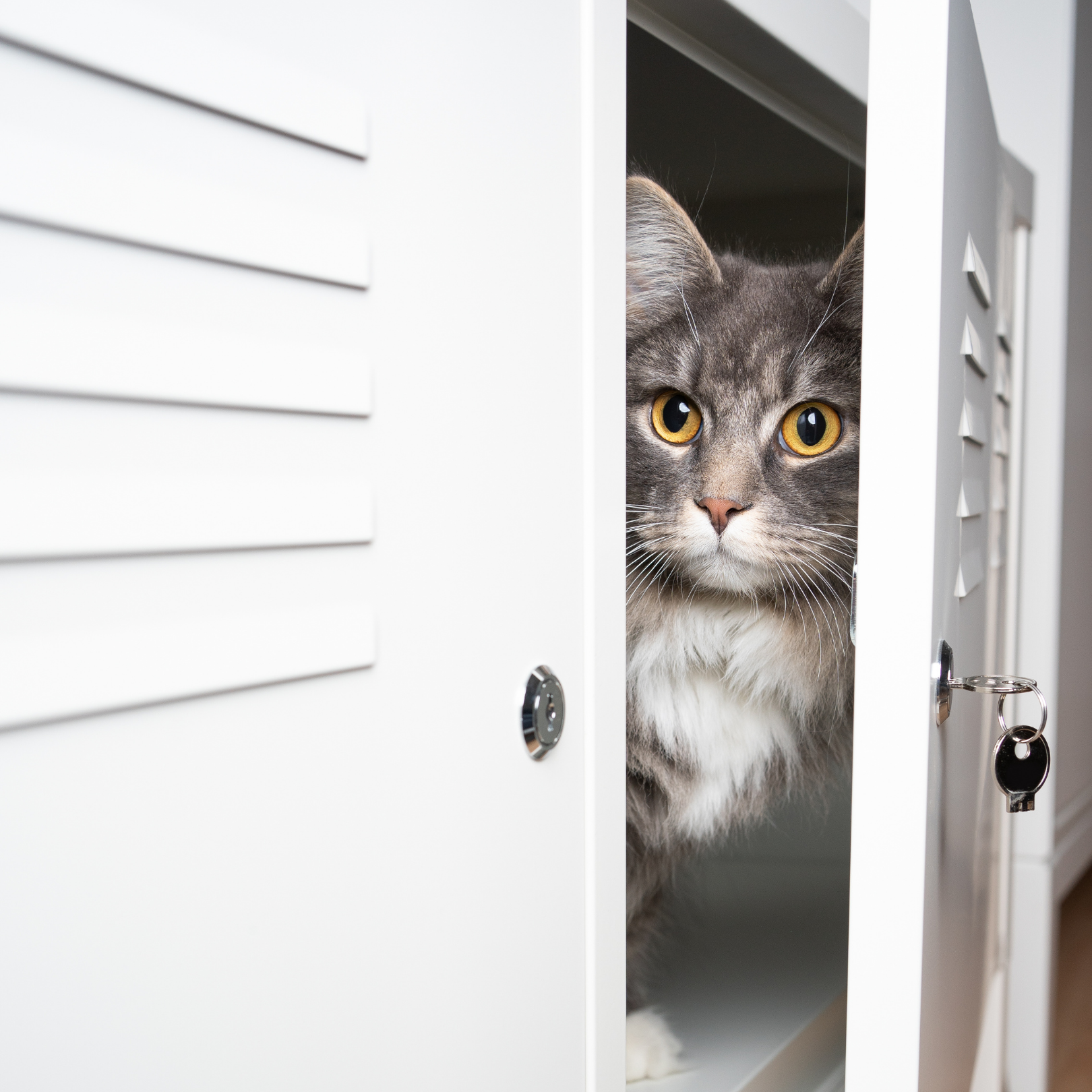
Friendship goals part 2: you, your veterinarian and your wallet
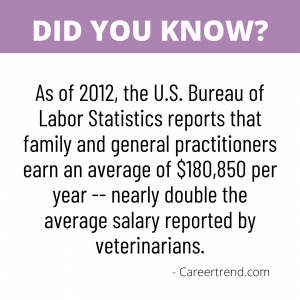 Veterinarians are often — and usually unfairly — scrutinized for the costs associated with our pets’ health care. Far too often, pet owners will avoid preventative health care due to the cost, but end up facing emergencies down the road that cost far more and could have been prevented or mitigated by routine health checks and screening. Before we move on to tips for saving money on the cost of health care, it’s only fair that we first understand the costs veterinarians are faced with in order to be able to provide that care.
Veterinarians are often — and usually unfairly — scrutinized for the costs associated with our pets’ health care. Far too often, pet owners will avoid preventative health care due to the cost, but end up facing emergencies down the road that cost far more and could have been prevented or mitigated by routine health checks and screening. Before we move on to tips for saving money on the cost of health care, it’s only fair that we first understand the costs veterinarians are faced with in order to be able to provide that care.
Those interested in pursuing a career as a veterinarian must complete 6-8 years of post-secondary education, depending on the vet school and its competitiveness. Four of those years are dedicated to receiving the designation of Doctor of Veterinary Medicine. According to iwanttobeaveterinarian.org, the cost of attending vet school in the United States ranges from $148,807 to $407,983 USD. Veterinary clinics and hospitals, by law, have to be owned by veterinarians. An article in Veterinary Practice News found that the average start up cost for a small animal clinic is $1,000,000…that doesn’t include the ongoing costs of payroll, rent, utilities, taxes, equipment maintenance, supplies and inventory.
There is an even greater cost to the professionals who care for our pets – their lives. Veterinarians are 3.5 times more likely than the general population to die by suicide. Listen to this KCBS Radio interview clip with Dr. Melanie Goble, founding member of the nonprofit Not One More Vet:
Audio PlayerLet’s now move on to how cat owners can best prepare for the costs of cat ownership:
Create a Budget before adopting or purchasing a cat to make sure she will get everything she needs to live a happy and healthy life without compromise. Calling the local vet’s office for prices is a great place to start. For kittens, enquire about the cost of all necessary vaccines, deworming, spay/neuter, microchip, fecal screening and parasite control/prevention medication. For an adult cat, enquire about annual health exams, blood/urine/fecal screening, parasite prevention and dental cleaning. From there, factor in the cost of supplies like food, litter, toys, and furniture.
Wellness plans are offered by most companion animal clinics and are worth the investment. These plans bundle important yearly services at a discounted rate and sometimes come with perks like free nail trims and food discounts.
Pet insurance will help cover unexpected veterinary costs such as diagnostics, hospitalization, surgery and medications. Some providers even cover routine preventative care like annual health exams and vaccines. Mature and senior cats, as well as cats with pre-existing conditions can be insured, too. Call around to different companies to find the coverage best suited to your needs and budget.
Keep your cat indoors most of the time, with outdoor time being on a harness or within a safe enclosure like a catio. Cats that roam freely outdoors are at higher risk of becoming injured, contracting disease from other animals and infection from parasites. Visit our Safe Outdoor Exploration resource page to learn more about the risks cats face with outdoor living.
There is funding for cat owners facing unexpected financial difficulties, leaving them unable to afford emergency veterinary care for their cats. Veterinary governing bodies such as the American Veterinary Medical Association and the Canadian Veterinary Medical Association can direct cat owners in need to the appropriate support resources depending on their circumstances.
Managing your cat’s health at home is essential to her vitality and well-being and will help to stave off common (and expensive) illnesses like obesity, kidney disease and dental disease. Aside from veterinary care, there are three other significant ways you can impact your cat’s health and vitality: feed a nutritionally balanced, well-researched and life stage appropriate diet; brush your cat’s teeth daily and/or use a water additive that fights plaque and tartar; and enrich your cat’s environment to not only provide her with the basic essentials, but also everything she needs to enjoy a life free of fear and stress.



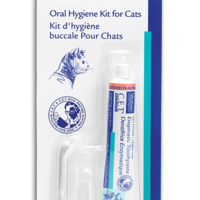
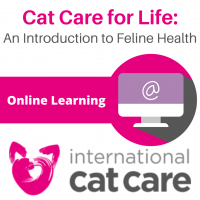

 Start with a huge, uncovered box, or even a kiddie pool, and fill with a thick layer (about 6 inches) of unscented clay or fine sand-like particulate clumping/scoopable litter. For Ollie, you may need to play around with the substrate types to make it more natural. Try using soil or peat.
Start with a huge, uncovered box, or even a kiddie pool, and fill with a thick layer (about 6 inches) of unscented clay or fine sand-like particulate clumping/scoopable litter. For Ollie, you may need to play around with the substrate types to make it more natural. Try using soil or peat.